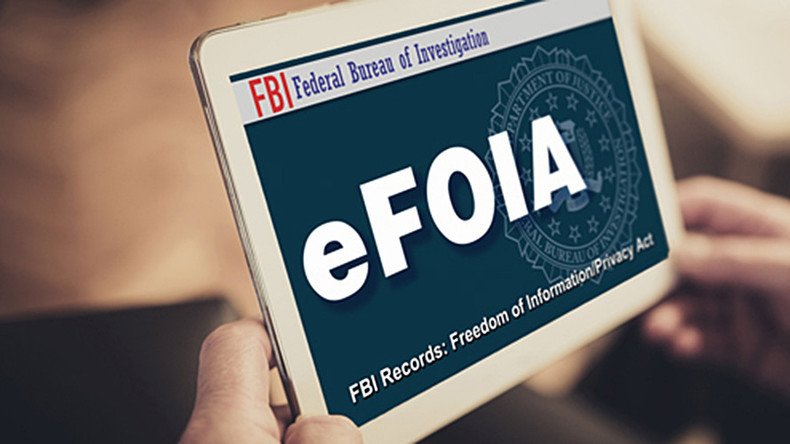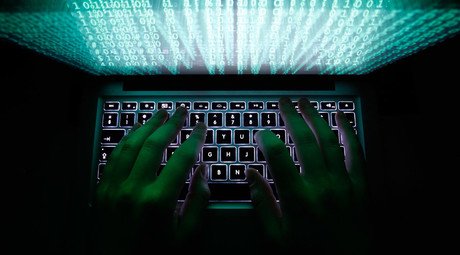Critics slam FBI’s new app that demands ID before sharing public data

The FBI’s new data-requesting eFOIA app comes with controversial terms: The agency wants your ID in exchange for the information. Critics argue that the FBI collecting the requesters’ sensitive information is “over the top” and likely illegal.
The Bureau presented its new application, eFOIA, earlier this week. According to an official press release, it is for “a new generation that’s not paper-based” who want to “obtain the FBI records a little quicker.” Previously, the FBI was accepting such requests only through regular mail, fax or e-mail.
However, the app comes with a new – and quite controversial – requirement: the FBI wants a photo of a requester’s government-issued ID first. Without it, the agency will not process a request and, thus, decline to share the information it must share under the Freedom of Information Act (FOIA).
For its part, the Bureau said it needs the photo “so the FBI is confident in the identity of the requester.” However, no such ID is required when processing FOIA requests through other means.
This is where critics argue the FBI actually makes the process harder, not easier – and probably not safer, either.
“The FBI does not explain how people’s ID cards will be stored, used, or shared, except under its rather broad existing site-wide privacy policy,” investigative researcher Dave Maass wrote at The Electronic Frontier Foundation (EFF). He said this requirement should be “treated as a bug and excised from the new system.”
"They are taking that opportunity to impose slightly harder lines,” Matt Rumsey, a senior policy analyst with the Sunlight Foundation transparency group, told the government IT news site FedScoop. “There are plenty of other agencies that have online systems that don't require this sort of thing.”
For example, the Department of Homeland Security (DHS), which manages essentially the same app, requires general information such as a full name, a phone number, or an address, but does not request any kind of ID.
“In my experience, it’s not something that any other government agency asks for,” Rumsey said. “It’s one thing to request an email address, or ask somebody for their mailing address and name, but to actually send over an ID is, at the least, going to discourage people from filing FOIA requests,” he said, describing the FBI’s new terms as an “unnecessary” and “over the top” practice.
#FBI accessed personal web history, location data without warrant – court docs https://t.co/6mN4mpfQn1pic.twitter.com/VjKhheDdc1
— RT America (@RT_America) December 1, 2015Moreover, “requiring photo ID will undoubtedly have a chilling effect,” the EFF’s Maass warned.
“Researchers, journalists, and activists may avoid the system for fear that it will result in further government scrutiny over their private lives,” he wrote. “After all, many FOIA requests are intended to uncover controversial actions that could embarrass the FBI.”
According to FedScoop, the FBI declined their request to comment on the eFOIA app.













